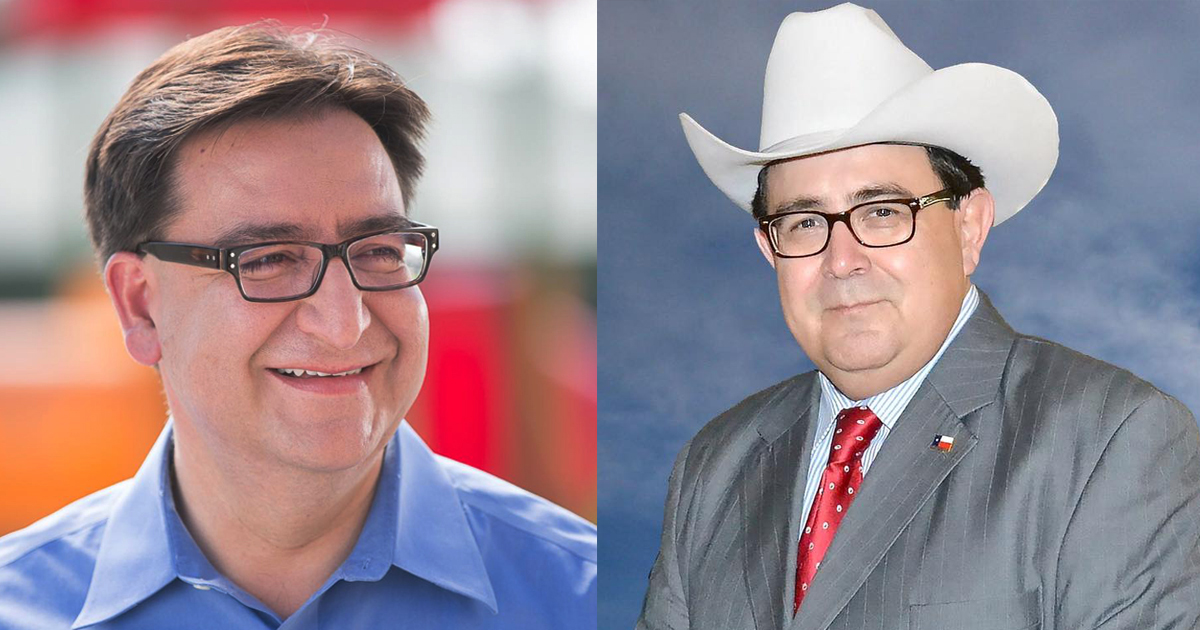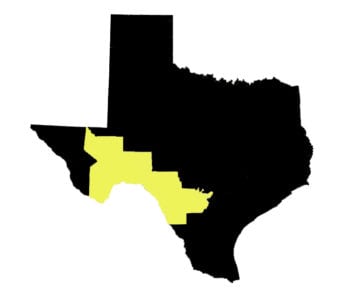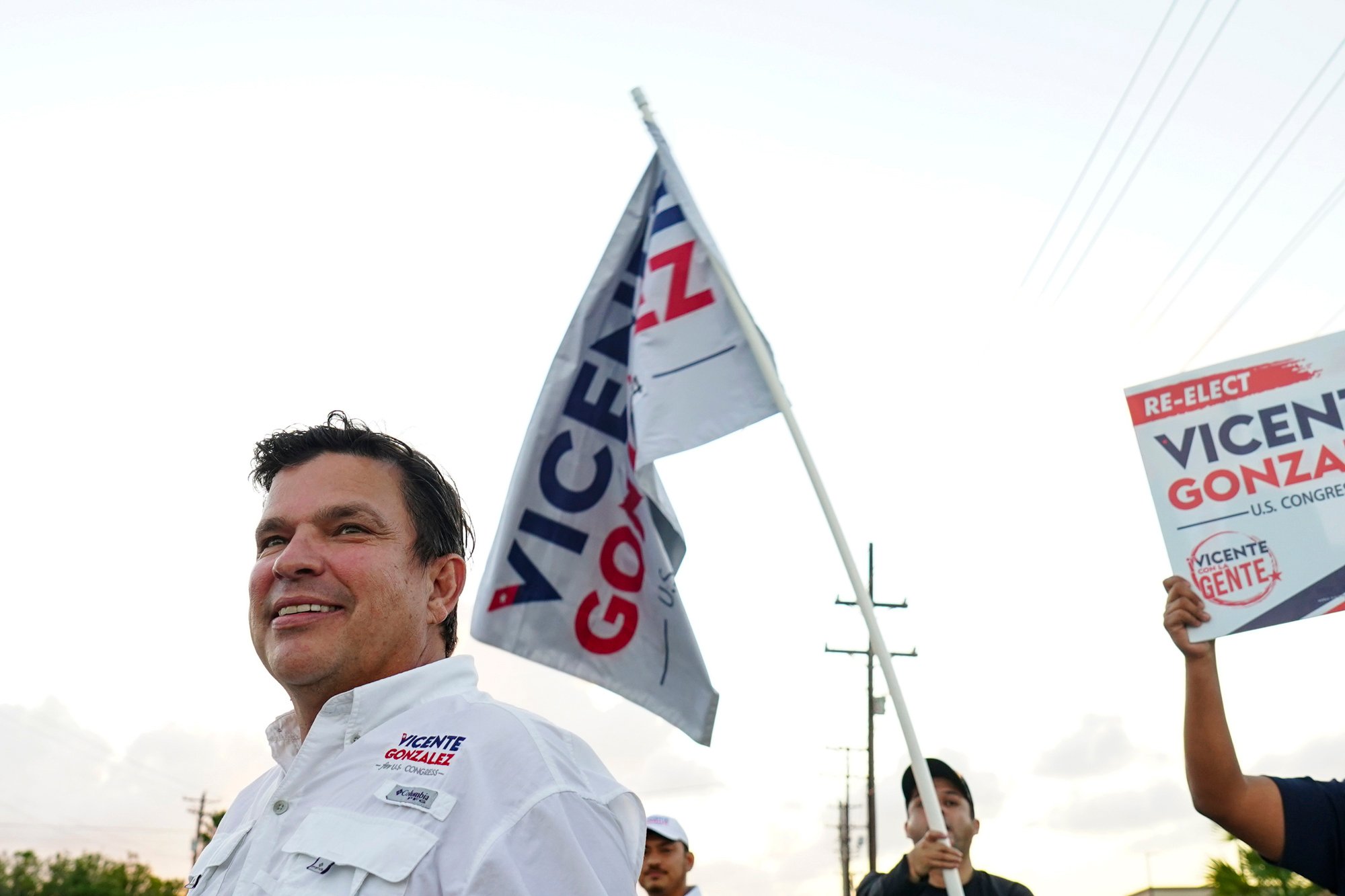
A Republican Made the Runoff for Uresti’s Senate Seat. What’s that Mean?
Amid Democratic Party infighting, the Texas GOP made a last-ditch effort to get their guy into a runoff — putting a precious Democratic state Senate seat in jeopardy.

Above: Pete Gallego, Pete Flores
When longtime San Antonio Democratic state Senator Carlos Uresti was convicted of fraud and sentenced to 12 years in prison last month, he was forced to vacate his state Senate seat and Governor Greg Abbott promptly scheduled a special election. That created a rare opportunity for an ambitious Democrat to fill the void.
Roland Gutierrez, a San Antonio state representative, and Pete Gallego, a former U.S. Congressman who lost his seat to Will Hurd in 2014 and then narrowly lost his bid to win it back in 2016, both jumped into the race for Senate District 19, which includes part of San Antonio and stretches a couple hundred miles along the border deep into West Texas. From the get-go, Gutierrez, hoping for a one-on-one runoff battle with Gallego, positioned himself as the liberal alternative to what he cast as his centrist career politician opponent.

For much of the (very short) race, the focus centered on ideological differences and Democratic feuding. Then, Texas Republicans made a last-minute play with a flood of support — including robocalls, email blasts and digital ads — for the leading Republican candidate, Pete Flores. The retired game warden got help from Abbott, Lieutenant Governor Dan Patrick, U.S. Senators Ted Cruz and John Cornyn and the NRA.
It worked: Flores, who lost handily against Uresti in 2016, surprisingly slipped into first place in the eight-way race while Gallego and Gutierrez split the Democratic vote. Democrats dominated the early-vote totals, but Flores ran up the numbers on Election Day — especially in Bexar County, where he actually won the Election Day vote. Democrats won 66 percent of the early vote total but just 52 percent of the Election Day vote.
In a crowded field, Flores ended up with more than 34 percent of the vote; Democrat Pete Gallego came in second with 29 percent; Gutierrez finished in third with 24 percent. Because no candidate won 50 percent of the vote, Flores and Gallego will head to a runoff on a date picked by Abbott.
The first-place Republican performance in an otherwise reliably Democratic district has set the Texas GOP’s heart aflutter, prompting a victory lap and promises to double down on their efforts to pick off the seat in the lead up to the runoff.
Whoa! This changes the narrative about mid-term special elections going to the Democrats. It’s different in Texas. Today, in an historically Democrat seat, Republican @PeteFlores_TX leads all Democrats in this special election. #txlege #tcot https://t.co/REfczgvNDB
— Greg Abbott (@GregAbbott_TX) August 1, 2018
Matt Mackowiak, a top Texas Republican operative who managed Flores’ campaign, told me that he sees a runoff as winnable. He predicts that Flores “is going to get extraordinary help” from the party and that Democrats will struggle to turn out the vote in what may very likely be a late-summer runoff.
However, Texas Democrats point to the fact that their candidates, in aggregate, still garnered a hearty 20-point advantage over the total Republican share — their proof that Gallego will have little problem winning the runoff.
“One thing is clear, working Texans are overwhelmingly choosing Democrats to represent their interests,” Texas Democratic Party Chair Gilberto Hinojosa said in a statement.
In the 2016 general election, Flores ran against Uresti and got whomped, getting just 40 percent of the vote. On top of that, Democrats see affirmation of a blue wave in the special election tea leaves. They see a modest uptick in their vote share from 2016 to now — 55.9 percent to 58.3 percent — as a good sign for Gina Ortiz Jones’ bid to unseat Republican Congressman Will Hurd, who represents a district that includes much of the same West Texas turf as state Senate District 19. Hurd narrowly won re-election in 2016 against Gallego while Hillary Clinton won his district by about 3.4 percent.
The first-place Republican performance in an otherwise reliably Democratic district has set the Texas GOP’s heart aflutter.
So should Texas Democrats be concerned about losing Uresti’s seat to the Republicans? It’s still a certainly a long shot, given the Democratic advantage. But runoffs are highly unpredictable; special election runoffs even more so. A runoff win for the GOP could serve as a buffer against three other state Senate seats that Democrats are making a serious play for in November.
If Republicans are able to gain a reliably Democratic seat in mostly blue San Antonio and maintain their existing numbers, Patrick, who leads the upper chamber, would have a powerful two-thirds supermajority heading into the 2019 legislative session.
For now, reactionary analysis of the results as #DemsInDisarray is largely unwarranted. But Republicans showed that they can compete in this district if they care to, and Democrats should take that very seriously.


